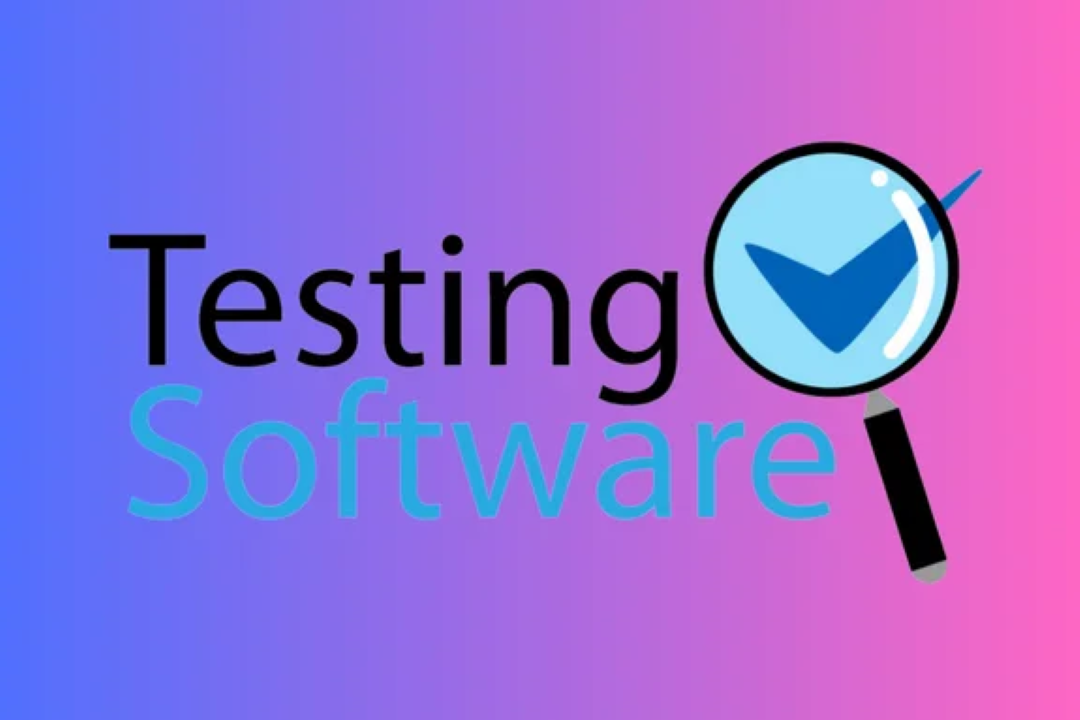Manual Testing Course Fees In Pune
Manual testing course fees in Pune typically vary based on the training institute, course duration,
Manual Testing Course Fees In Pune
The manual testing course fees in Pune are a valuable investment for aspiring software testers, as they provide comprehensive training that covers essential testing concepts, methodologies, and real-time project experience. The course fees typically reflect the quality of the training, duration, and the expertise of the instructors, making it accessible for various budgets. By enrolling in a manual testing course, individuals gain crucial skills that are highly sought after in the IT industry, thus enhancing their employability and career prospects. With the growing demand for software quality assurance, the knowledge and hands-on experience gained from such courses can significantly boost an individual's confidence and readiness to succeed in a competitive job market.
To Download Our Brochure: https://www.justacademy.co/download-brochure-for-free
Message us for more information: +91 9987184296
The manual testing course fees in Pune are a valuable investment for aspiring software testers, as they provide comprehensive training that covers essential testing concepts, methodologies, and real time project experience. The course fees typically reflect the quality of the training, duration, and the expertise of the instructors, making it accessible for various budgets. By enrolling in a manual testing course, individuals gain crucial skills that are highly sought after in the IT industry, thus enhancing their employability and career prospects. With the growing demand for software quality assurance, the knowledge and hands on experience gained from such courses can significantly boost an individual's confidence and readiness to succeed in a competitive job market.
Course Overview
The Manual Testing Course in Pune offers an in-depth exploration of software testing principles and practices, designed for both beginners and experienced professionals looking to enhance their skills. Participants will learn essential testing methodologies, including functional, regression, and integration testing, alongside industry-standard tools and techniques. The course includes hands-on projects that simulate real-world scenarios, providing practical experience in identifying, reporting, and managing software defects. With experienced instructors guiding the way, students will also gain insights into best practices and industry trends, equipping them with the knowledge necessary to excel in the field of software quality assurance. The course is competitively priced, making it an attractive option for those seeking to advance their careers in software testing.
Course Description
The Manual Testing Course offered by JustAcademy in Pune is designed to provide a comprehensive foundation in software testing principles, methodologies, and tools. With a focus on practical applications, participants will engage in real-time projects that enhance their skills in identifying and reporting bugs, understanding different testing types, and implementing effective test cases. The course covers essential topics such as functional testing, regression testing, and usability testing, ensuring that students gain both theoretical knowledge and hands-on experience. This course is an ideal choice for aspiring quality assurance professionals looking to advance their careers in the tech industry while enjoying competitive pricing tailored to fit various budgets.
Key Features
1 - Comprehensive Tool Coverage: Provides hands-on training with a range of industry-standard testing tools, including Selenium, JIRA, LoadRunner, and TestRail.
2) Practical Exercises: Features real-world exercises and case studies to apply tools in various testing scenarios.
3) Interactive Learning: Includes interactive sessions with industry experts for personalized feedback and guidance.
4) Detailed Tutorials: Offers extensive tutorials and documentation on tool functionalities and best practices.
5) Advanced Techniques: Covers both fundamental and advanced techniques for using testing tools effectively.
6) Data Visualization: Integrates tools for visualizing test metrics and results, enhancing data interpretation and decision-making.
7) Tool Integration: Teaches how to integrate testing tools into the software development lifecycle for streamlined workflows.
8) Project-Based Learning: Focuses on project-based learning to build practical skills and create a portfolio of completed tasks.
9) Career Support: Provides resources and support for applying learned skills to real-world job scenarios, including resume building and interview preparation.
10) Up-to-Date Content: Ensures that course materials reflect the latest industry standards and tool updates.
Benefits of taking our course
Functional Tools
1 - Selenium IDE
Selenium IDE is a popular tool used for automated testing, but it also plays a crucial role in manual testing. This tool helps students understand basic testing concepts through a user friendly interface that allows for recording and replaying test cases. The visual nature of Selenium IDE aids in teaching students how to approach test case creation and execution, making the learning process interactive and engaging. By using Selenium IDE, students can observe how user actions translate into test cases, thereby enhancing their grasp of manual testing principles.
2) JIRA
JIRA is a project management tool widely utilized in software development for issue tracking and project planning. In the Manual Testing Course, students learn how to log defects and manage testing workflows using JIRA. This tool equips them with skills to prioritize bugs and collaborate with development teams effectively. Understanding JIRA prepares students for real world scenarios where effective communication and organization are essential in the testing process, ensuring they can seamlessly integrate into teams upon graduation.
3) Postman
Postman is primarily used for API testing but also plays a significant role in manual testing of web applications. In the course, students learn how to use Postman to create, send, and test HTTP requests, helping them understand the backend of applications. The hands on experience with Postman not only broadens their testing skills but also enhances their ability to validate the functionality of web services as part of the overall testing process. This knowledge is essential for a comprehensive understanding of how user interfaces interact with underlying systems.
4) TestRail
TestRail is a powerful test management tool that allows students to manage test cases, plans, and runs. Throughout the course, participants are taught how to effectively use TestRail for tracking testing progress, organizing test cases, and reporting on test results. This tool enables students to build a structured testing process, ensuring that they can maintain clear documentation and visibility of their testing efforts. Mastery of TestRail also prepares students for roles that require meticulous attention to detail in tracking and reporting testing outcomes.
5) Bugzilla
Bugzilla is an open source bug tracking system that aids in managing defects discovered during testing. In the Manual Testing Course, students learn to submit and track bugs effectively using Bugzilla, thereby gaining insight into defect lifecycle management. Understanding how to utilize Bugzilla equips students with skills to collaborate with development teams on bug resolution, emphasizing the importance of effective communication in software quality assurance. This practical experience also instills in students an appreciation for rigorous tracking and reporting methodologies in manual testing.
6) Microsoft Excel
Microsoft Excel is a versatile tool that finds extensive application in manual testing for organizing test cases, managing test data, and tracking results. By incorporating Excel into the curriculum, students learn how to create test case templates, log defects, and perform data analysis. Excel enables concise documentation of testing activities, which is vital for reporting and communication within testing teams. This practical knowledge enriches students' capabilities, allowing them to manage complex testing scenarios and delivering quality assurance in a structured manner.
7) TestLink
TestLink is an open source test management tool that enables teams to manage test cases, execution, and reports efficiently. In the Manual Testing Course, students will learn how to create and organize test plans, link requirements, and track testing progress with TestLink. This practical experience encourages students to develop skills in maintaining comprehensive documentation and enhances their understanding of test coverage. Familiarity with TestLink prepares students to take on roles in quality assurance where structured test management is essential.
8) Charles Proxy
Charles Proxy is a web debugging proxy application that allows students to inspect and analyze network traffic between their machine and web applications. In the Manual Testing Course, students will use Charles Proxy to monitor HTTP(s) requests and responses, helping them identify issues related to data transmission and API interactions. Learning to use Charles Proxy empowers students to troubleshoot effectively and understand the performance of applications, making it an invaluable tool in their manual testing toolkit.
9) Fiddler
Similar to Charles Proxy, Fiddler is another web debugging tool that enables students to capture HTTP(s) traffic. Throughout the course, students will use Fiddler to analyze the requests and responses of web applications. By mastering Fiddler, they can diagnose connectivity issues and validate APIs against expected outcomes. This hands on experience provides students with insights into the complexities of web interactions and enhances their ability to perform comprehensive manual testing.
10) Cucumber
Cucumber is a tool that supports Behavior Driven Development (BDD) by allowing users to write tests in a human readable format. In the Manual Testing Course, students learn how to use Cucumber to create feature files that describe application behavior, bridging the gap between testing and development. This knowledge not only enhances their testing capabilities but also fosters collaboration between technical and non technical members of the team, promoting better understanding and communication of requirements.
11 - SoapUI
SoapUI is a tool for testing APIs and web services, particularly SOAP and RESTful services. In the course, students will be introduced to SoapUI to create functional tests and perform load testing of web services. Understanding how to utilize SoapUI equips students with essential skills to validate API performance and behavior, making them well rounded testers capable of addressing both front end and back end issues in applications.
12) Gherkin
Gherkin is a language used to write test cases in a readable and understandable format for all stakeholders. In the Manual Testing Course, students learn how to write feature files in Gherkin syntax to describe desired behaviors of software. This skill not only aids in clarifying test cases but also lays the foundation for later adoption of tools like Cucumber, enhancing collaboration and ensuring that testing aligns with business requirements.
13) Trello
Trello is a project management tool that utilizes boards, lists, and cards for organizing tasks. In the context of manual testing, students use Trello to manage their testing tasks and track testing progress visually. This hands on experience with Trello fosters a better understanding of project management principles, enabling students to coordinate tasks effectively within teams and ensuring that testing efforts align with project timelines and deliverables.
14) Mind Mapping Tools (e.g., XMind, MindMeister)
Mind mapping tools help students organize their thoughts and ideas visually. In the Manual Testing Course, students can use mind maps to outline their testing strategies, plan test cases, and visualize the testing process. This skill encourages them to develop comprehensive test plans and fosters creative problem solving, making it easier to navigate complex applications and requirements during manual testing.
15) Balsamiq Mockups
Balsamiq Mockups is a wireframing tool that enables students to create user interface prototypes. Throughout the course, students use Balsamiq to visualize and design application interfaces, which is integral to understanding user experience (UX). This foundational knowledge allows students to consider usability as a key aspect of testing, emphasizing the importance of user centered design in creating effective software solutions.
By incorporating these tools and methodologies into the Manual Testing Course, JustAcademy prepares students with the practical skills and theoretical knowledge necessary for a successful career in software testing and quality assurance. Each tool enhances their learning experience and equips them to address real world challenges in the industry.
Browse our course links : https://www.justacademy.co/all-courses
To Join our FREE DEMO Session: Click Here
This information is sourced from JustAcademy
Contact Info:
Roshan Chaturvedi
Message us on Whatsapp: +91 9987184296
Email id: info@justacademy.co











